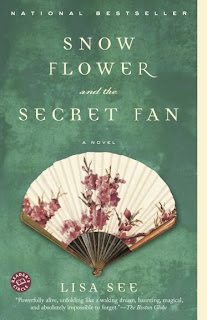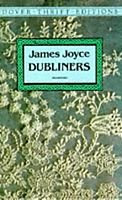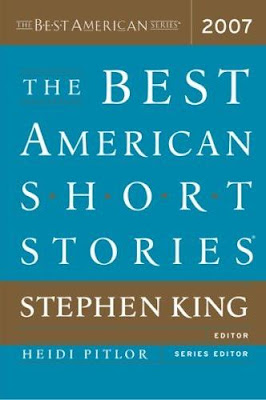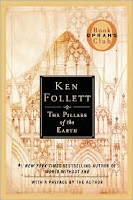Review: Snow Flower and the Secret Fan by Lisa See
Snow Flower and the Secret Fan by Lisa See (2005)
Historical Fiction, 253 pages
The Random House Publishing Group
Random House Trade Paperback Edition
Read for the 888 Challenge and the Historical Fiction Challenge
As I noted in another post, I was lucky to have grown up within a very diverse community and had the privilege of learning, and appreciating, the impact made on San Francisco, as well as California by other cultures.
But one cannot truly begin to understand a culture unless exposed to its past. And I am pleased to say that Snow Flower and the Secret Fan helps do just that. Even though this is a fictional novel about the relationship shared between two women, its tone and setting allow one to get a glimpse of the culture in which they lived.
The book is set in nineteenth century China, during a time in which gender roles were clearly defined and strictly adhered to:
We may love our daughters with all our hearts, but we must train them through pain. We love our sons most of all, but we can never be part of their world, the outer realm of men. We are expected to love our husbands from the day of Contracting a Kin, though we will not see their faces for another six years. We are told to love our in-laws, but we enter those families as strangers, as the lowest person in the household, just one step on the ladder above a servant.
Despite these constraints, and in part because of them, women located in a remote county of China developed a “secret code” called nu shu (women’s writing). In this way, isolated women were able to remain connected, for it was a woman’s fate to leave their ‘natal’ families to become part of their husband’s.
Against this backdrop, Lisa See tells the story of two young girl’s who become “old-sames”; bound together for life by a solemn promise:
…a joining of two hearts that cannot be torn apart by distance, disagreement, loneliness, better marriage position, or by letting other girls – and later women – come between you.
The story is told by one of these girls, who is now eighty years old and who wishes to tell her story – their story – as a way to free her conscious before she dies. We see a hint of what is to come when she tells us:
By the time I was forty, the rigidity of my footbinding had moved from my golden lilies to my heart, which held on to injustices and grievances so strongly that I could no longer forgive those I loved and who loved me…For me, love was such a precious possession that I couldn’t share it with anyone else, and it eventually cut me away from the one person who was my same.
These are very telling quotations, but they do not give away the deeper meaning to this story. As the author notes:
Snow Flower and the Secret Fan is a story about friendship and what it means to be a woman. Yes, our lives are completely different from those lived by the nu shu writers, but inside we are the same. We want people to hear our thoughts, appreciate our creativity, and feel empathy for our emotions.
Even though the dynamics of this relationship occur in a faraway place and in a culture few of us truly understand, it still touches the heart because deep down, we are not so different: we all want to be heard, understood, and appreciated.
I will leave it to you to read this story and discover what becomes of these two women. Along the way, I hope it not only teaches you about another culture you may or may not have already been aware of, but also that there are many more similarities between us than there are differences.
Apparently this book as received mixed reviews. I am not sure why. All I can say is that I thoroughly enjoyed it, and found myself a little bit emotional when reading the final page. It was one of those books that had me putting off a good night’s sleep because I did not want to wait until morning to read the ending. For this reason it is getting a 5 Star rating.
I highly recommend this book, and even though it is only 253 pages, I would advise beginning it earlier in the day – just in case.

Lisa See is the New York Times bestselling author of Peony In Love, Shanghai Girls, Flower Net (an Edgar Award nominee), The Interior, and Dragon Bones, as well as the critically acclaimed memoir On Gold Mountain.






